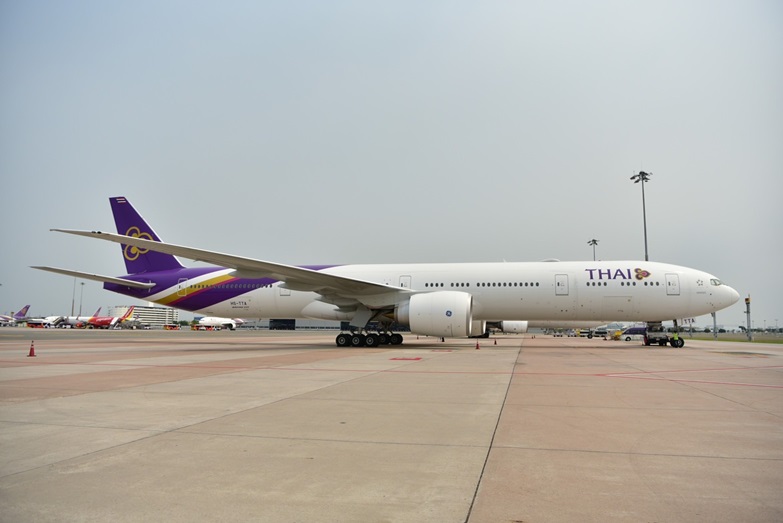In a significant development, Boeing is reportedly in advanced negotiations to sell approximately 80 wide-body 787 Dreamliner jets to Thai Airways, pulling ahead of its competitor Airbus in a closely watched fleet renewal initiative. The move comes as Thai Airways seeks to capitalize on the anticipated post-pandemic travel boom by enhancing its regional routes.
The story unfolded when it was first reported in September that Thai Airways was expanding its aircraft requirements, eyeing up to 80 wide-body jets and 15 smaller ones. This triggered a fierce competition between Boeing’s 787 Dreamliner and Airbus’s A350 for one of the most substantial wide-body orders from Southeast Asia in recent times. Both Boeing and Airbus have chosen to remain tight-lipped about the ongoing negotiations, while Thai Airways has yet to respond to requests for comments.
The Thai national carrier’s strategy aligns with its vision to bolster regional routes, anticipating a surge in travel demand as the world emerges from the grip of the COVID-19 pandemic. However, concerns have been raised regarding the capacity of planemakers, particularly Airbus and Boeing, to scale up production efficiently to meet the anticipated upswing in demand.
Thai Airways embarked on a significant financial restructuring in 2021, addressing a debt amounting to 400 billion baht ($11.17 billion). This restructuring, coupled with the potential acquisition of Boeing’s 787 Dreamliners, signifies a strategic move to position the airline for success in a recovering aviation industry.
Boeing’s advanced talks with Thai Airways mark a noteworthy shift in the dynamics of the aviation market, as the Dreamliner gains traction against its rival Airbus A350. The 787 Dreamliner is renowned for its fuel efficiency, cutting-edge technology, and passenger comfort, making it an attractive choice for airlines looking to modernize their fleets.
Industry experts are closely monitoring these developments as the aviation sector anticipates a resurgence in demand for air travel. The potential agreement between Boeing and Thai Airways not only signals a vote of confidence in the Dreamliner but also underscores the importance of strategic fleet decisions in navigating the evolving landscape of the post-pandemic aviation industry.
As negotiations progress, stakeholders in the aviation community eagerly await official statements from both Boeing and Thai Airways, anticipating the finalization of a deal that could reshape the future of Thai Airways’ fleet and contribute to the broader narrative of recovery within the global aviation sector.
(Source: Tim Hepher | Chayut Setboonsarng | Valerie Insinna | Jan Harvey | David Evans | Reuters | Airline Ratings)









